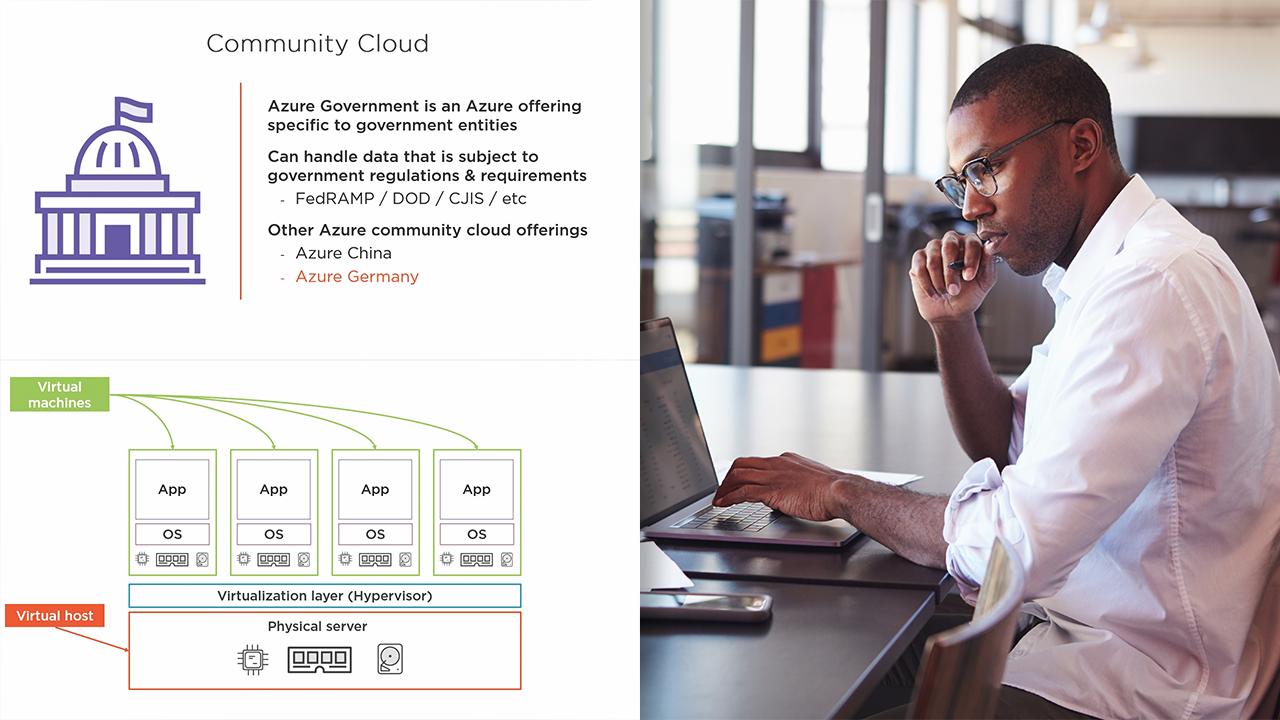- Course
Microsoft Azure Cloud Concepts
Cloud computing is at the core of every organization's IT strategy and Microsoft is one of the top cloud services providers. This course will teach you the basics and benefits of cloud computing.

- Course
Microsoft Azure Cloud Concepts
Cloud computing is at the core of every organization's IT strategy and Microsoft is one of the top cloud services providers. This course will teach you the basics and benefits of cloud computing.
Get started today
Access this course and other top-rated tech content with one of our business plans.
Try this course for free
Access this course and other top-rated tech content with one of our individual plans.
This course is included in the libraries shown below:
- Cloud
What you'll learn
Over 90% of the Fortune 500 companies use at least one Microsoft cloud service. In this day and age, it’s important for any IT or Business Professional to know what Microsoft offers from a cloud computing perspective. In this course, Microsoft Azure Cloud Concepts, you will focus on the basics of cloud computing by defining at a more general level what the cloud is, why it’s useful, and examine how Microsoft fits in each type of cloud offering. First, you will learn about what the cloud is and why it is important. Next, you will discover the different types of cloud computing. Finally, you will explore the different cloud computing deployment models. When you are finished with this course, you will gain an understanding of why the cloud is so important to today's businesses and know the differences between, public, private, and community clouds.

